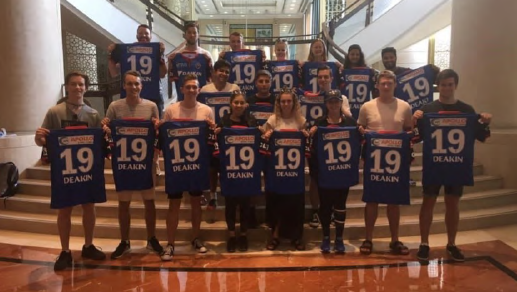Strengthening SDG integration into our Curricula
2016-17: Mapping ERS across all our courses’
We developed a conceptual framework to map sustainability integration at three levels of engagement focussing on ‘knowing, doing and being’. Through systematic course based, discipline based and individual conversations, we identified contextualised practical strategies for integrating sustainability across individual units at different levels. We engaged teachers through these conversations and structured surveys with practical examples of learning and assessment activities for meaningful sustainability integration. We worked collaboratively to avoid repetition across core units and ensure appropriate scaffolding in development and assessment across the whole program. One hundred and fifty nine Core unit chairs have reflected upon the potential for integrating discussions about SDGs in their individual units. More than two thirds of the 159 respondents provided examples of how they engage students with one or more SDGs in their units and identified tangible strategies for strengthening the integration of ERS and SDGs.
2018-2022
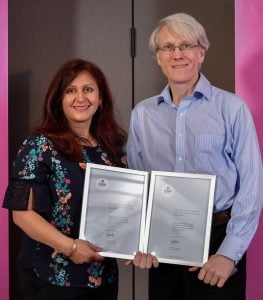
Our Submission “Bringing about a cultural shift for meaningfully integrating sustainability across mainstream curricula in Deakin Business School” has won the 2018 Green Gown Awards Australasia in the ‘Learning, Teaching & Skills’ category. The Green Gown Awards Australasia is the first and only Award Scheme dedicated to recognising excellence in sustainability within the tertiary education sector in Australasia.
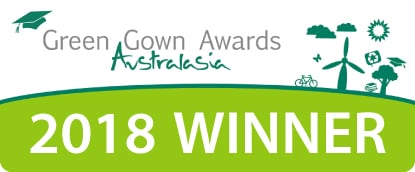
Deakin Business School (DBS) remains committed to engaging our staff, students, partners and the wider community meaningfully in advancing sustainable development goals. Our approach to “Engaging staff and students with SDGs to bring about a cultural shift in DBS” has been published as a case study on the SDGs Australia website.
Our focus has been on integrating SDGs more explicitly in the curriculum and strengthening nexus between sustainability capability and employability skills, an approach underpinning our winning submissions for 2018 ACTS Green Gowns Award Australasia. In 2019, we also adopted this approach in our application ‘Improving the Employability of International Students through Evaluative Judgement and Real Business Problems’ that won the ‘Deakin University Award for Excellence in Teaching for Student Employability’.
In 2019, we won a global competitive bid for £20,000 to design a four-week free open course, Leading Culturally Diverse Teams in the Workplace, on the FutureLearn MOOC platform. Our course has attracted more than 25,000 since its first run in September 2019. This year, it was showcased as one of the two Deakin courses and 18 Australian courses when the Australian Trade and Investment Commission (Austrade) and FutureLearn Study with Australia website was first launched in April and also received additional press releases and promotion from AusTrade in first week of May. It was also chosen to be part of the Victorian Government’s Upskill my Business website. In our current offering, we have had over 15,000 registered learners with over 6000 active learners.
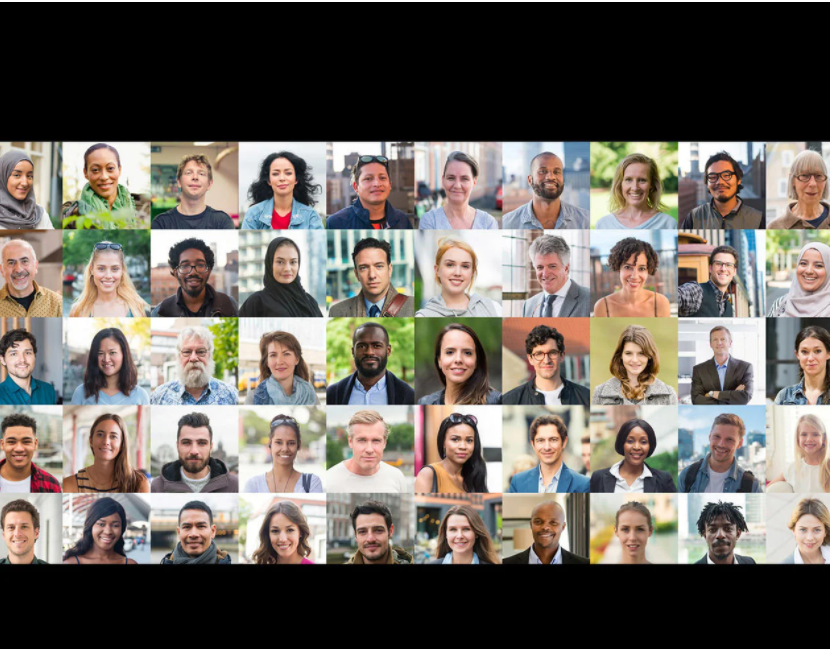
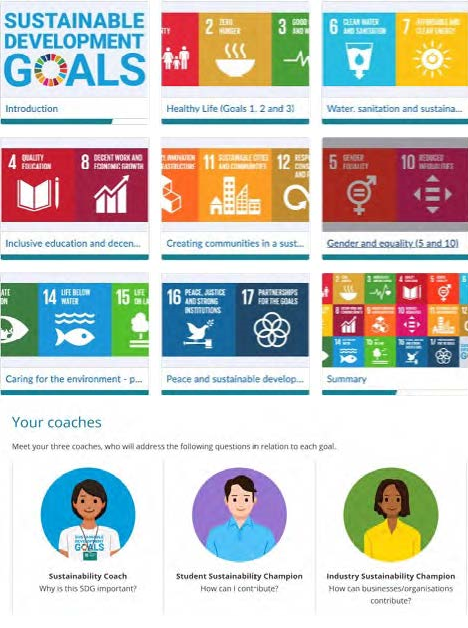
SDG awareness module
We produced a self-paced online module to create an introductory awareness of all the 17 SDGs. This module was piloted in 2020 with our cohort undertaking Global Virtual WIL Consultancy experiences in Trimester 2. While students who engaged with the module gave significantly positive feedback, many students did not engage with the module. To engage more students meaningfully with this module, in 2021 and 2022, we will pilot integrating this module with the assessment and learning activities in core units of our large undergraduate and postgraduate offerings. In consultation with the program leaders, we have identified appropriate first year core units in our three largest undergraduate programs for integrating this module. By sharing this module at our University’s Teaching and Learning Conference, we have also engaged the wider University community with this module. In 2021, this became a mandatory component of the Global Citizenship Program as well as an essential module for all students undertaking the Global Virtual WIL program offered by our PVC International’s portfolio.
Industry-university partnerships for SDG focused internships in Australia and India
This project is focused on fostering industry-university partnerships through workshops in Australia and India and develop a digital hub/portal for knowledge sharing to create high quality Sustainable Development Goals (SDG) focused student internships for advancing Agenda 2030 and graduate employment outcomes post-COVID19. This project is funded by the Department of Foreign Affairs and Trade (DFAT), Commonwealth Government of Australia, and aligns with the objectives of Australia India Council (AIC)- to “promote exchange and collaboration between Australian and Indian organisations in fields of relevance to the bilateral economic partnership”. Development of a digital hub/portal to provide SDG focused internships across borders will enhance the employability potential of students from Indian and Australian universities. Collaborating across borders on SDG focused projects, is strongly aligned with SDG17 (revitalise global partnerships).
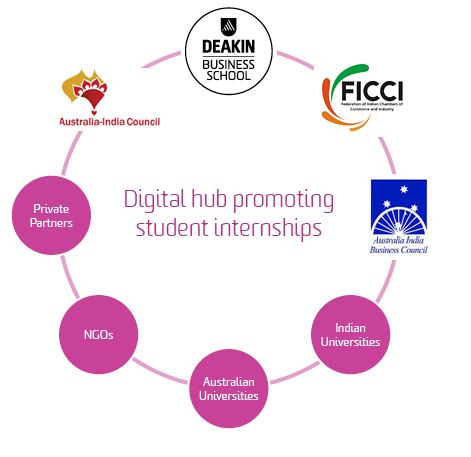
We are continuing to strengthen SDG integration across our undergraduate and postgraduate courses, including those listed below:
Bachelor of Property and Real Estate
Bachelor of Information Systems
Master of Business (Arts and Cultural Management)
Master of Business Administration
Examples of Undergraduate and Postgraduate Units Aligned with SDGs
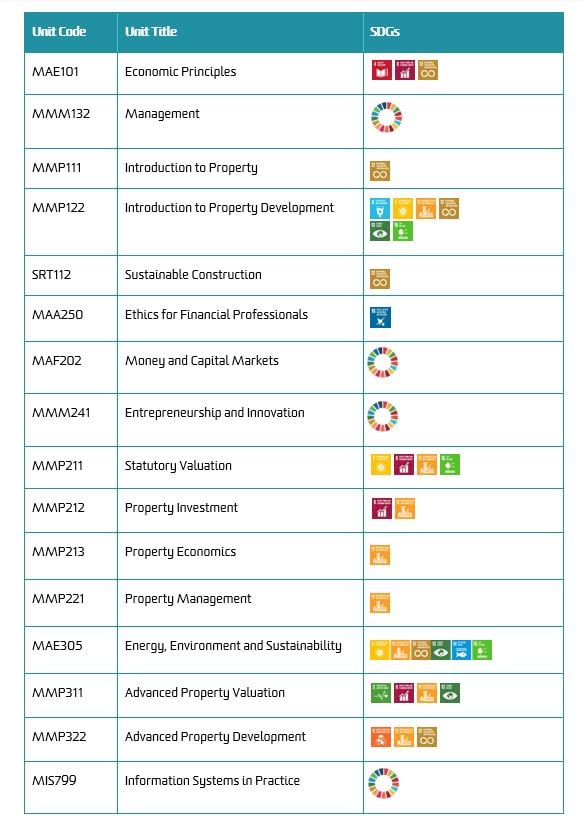
Engaging our students in sustainability related experiential learning opportunities
Through a variety of authentic assessment tasks in large core units, our students are engaging the industry and the wider community with sustainability practices by collecting and analysing information from unique real-life cases.
Global Citizenship Program (GCP)
Established in 2011, the Global Citizenship Program is designed to recognise and reward students who have engaged in significant internationalisation throughout their degree program. The GCP aims to engage students with a variety of global programs and activities to build up their skills to be globally aware, culturally sensitive, and able to live and work independently to be responsible leaders and sustainability change agents.
In 2019, we revised our suite of Work Integrated Learning (WIL) unit offerings and redesigned curricula to ensure that professional ethics is assessed as part of Global Citizenship across all our WIL units. We also produced a self-paced online module to create an introductory awareness of all the 17 SDG. This module was piloted in 2020 with our cohort undertaking SDG focused Global Virtual WIL Consultancy experiences.
The number of Faculty of Business and Law students registered for the GCP grew from 508 in 2019 to 559 in 2020.
Work Integrated Learning in the Faculty of Business and Law
The Faculty of Business and Law offers students a hands-on approach to learning by taking on an unpaid placement in businesses, not-for-profit, and community organisations both nationally and internationally through a range of work integrated learning opportunities available for our students. These programs enhance students’ job prospects with real-world experience and gain credit towards their degree at the same time. Deakin has formal partnerships with organizations such as CIS Australia and AIM Overseas to run these WIL programs.
Work with Australian Collaborative Education Network (ACEN)
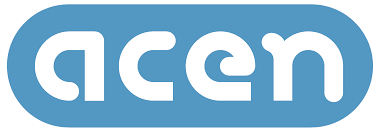
Associate Professor Harsh Suri and Ms Friederika Kaider co-led an ACEN funded project, in partnership with Dr Wayne Read and external colleagues, to identify the benefits and challenges of online placements and projects. The project particularly focused on the benefits and challenges for students with special needs and with competing carer or employment responsibilities. The project insights were published in an interim online WIL guide and three guides to online WIL and placements (one each for Practitioner, Industry & Community Partners, and Students) in 2021.
Deakin Business School collaborated with the Deakin Office of Indigenous Strategy and Innovation, NIKERI, RMIT and with support from Ngarara Willim Center, on an ACEN funded project to build respectful and supportive relationships with indigenous organisations and community groups through WIL. This project is collaborated with Indigenous organisations (businesses and community groups) to understand the current experiences with WIL, including the benefits and consequences of engaging with WIL programs in the past and in the future. The project is aimed at developing guides for practitioners on establishing sustainable, respectful Indigenous WIL partnerships, and training material for preparing students ahead of placements within Indigenous businesses and groups.
International Work Intergrated Learning Opportunities
Over the course of 2019, the Deakin Business School provided 1200 Work Integrated Learning (WIL) placements. Of these 313 were located overseas or featured an international component. While travel restrictions and implications of lockdown with limited face-to- face volunteering experiences and business closures, had an initial impact on WIL offerings in 2020, the Business School provided 890 placements, a decrease of approximately 26%. However, through the development of new programs with international clients, the international WIL offerings were only down 7% to 291. Some of these new programs were introduced as early as April 2020.
The majority of International WIL experiences offered during 2020 were through the Faculty managed Virtual Global WIL program.The virtual program provided 213 opportunities to work with on projects with international clients. During 2019, 37 internationally based internships were undertaken. These were largely self-sourced, and took place in the following locations: Hong Kong, China, UAE, Myanmar, Pakistan, India, Oman, Sri Lanka, Samoa, Thailand, Malaysia, and Vietnam. Travel disruptions caused by the COVID-19 pandemic gave students the opportunity to gain remote work experience with international companies.

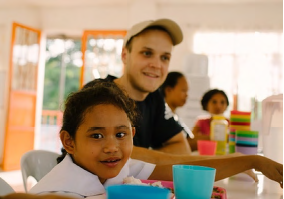
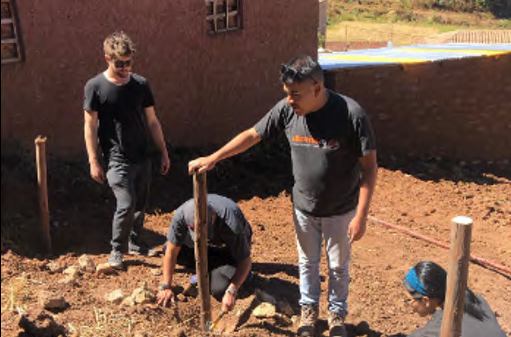
International Volunteering Initiatives
These are offered by the central team, in which many of our DBS students have participated. Over the course of 2019, 37 international volunteering opportunities were provided. Many of these were in partnership with third party provides such as CIS Australia and Volunteer Vietnam. Volunteering experiences occurred across the globe, including experiences in the Philippines, Zambia, Vietnam, Peru, Mexico, India, Cambodia, and Nepal.
The Business School ran structured study tour programs to locations including Japan, England, Malaysia, Vietnam, and South Korea during Trimester 2 and 3. These tours provided 200 International experiences, in addition, the India Sports Management Program and the Rajasthan Royals partnerships provided a further 18 structured placements.
